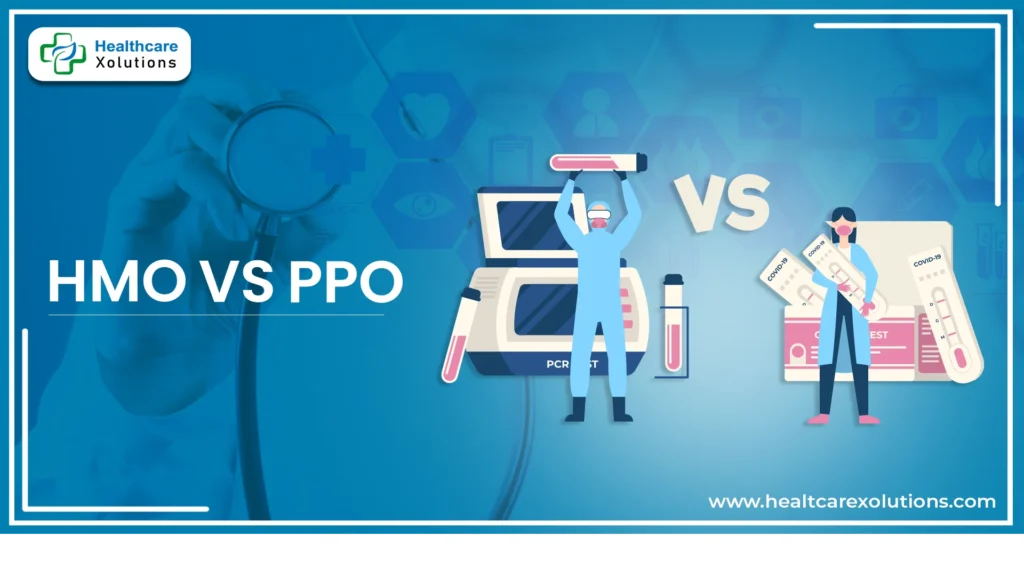HMO vs PPO: Which Health Insurance Plan is Right for You in 2024?

Choosing the right health insurance plan can be overwhelming, especially with numerous options available. Among the most popular types of health insurance plans in 2024 are Health Maintenance Organizations (HMO) and Preferred Provider Organizations (PPO). In fact, recent reports show that nearly 70% of Americans in 2024 are still relying on employer-sponsored health insurance, with HMO and PPO being two of the most commonly chosen plans. As healthcare costs continue to rise, selecting the right plan is more important than ever. Understanding the key differences between these two plans can help you make an informed decision that suits your healthcare needs and budget.
This article explains the basics of each plan, their advantages, and how to choose the one that best suits your lifestyle and financial goals.
Key Takeaways:
- HMO plans offer lower premiums but require network-based care and referrals to specialists.
- PPO plans provide greater flexibility with no referrals needed, but come with higher premiums and out-of-pocket costs.
- If you value affordability and don’t mind a restricted network, an HMO is the better choice.
- If you need more freedom in choosing doctors and specialists, and don’t mind paying more, a PPO is ideal.
- Consider your healthcare needs and budget when deciding between the two plans.
Table of Contents
HMO vs PPO: Key Differences Explained:
Health insurance plans come in many forms, but HMO (Health Maintenance Organization) and PPO (Preferred Provider Organization) plans stand out as the most widely selected options. Each offers unique features that affect both your healthcare experience and your budget.
1. What is Health Insurance?
Health insurance is a type of coverage that helps pay for medical, hospitalization, and surgical expenses. It can also provide benefits for preventive care, diagnostic tests, medications, and alternative therapies. Health insurance helps protect individuals from the high costs of healthcare and typically requires a monthly premium, in exchange for which the insurer covers part of the medical costs.
HMO: The Basics
An HMO plan requires members to choose a Primary Care Physician (PCP), who acts as a gatekeeper for all healthcare services. Referrals from the PCP are typically necessary to see specialists. The main advantages of HMO plans include lower premiums and out-of-pocket costs, making them an affordable choice for many.
Pros of HMO Plans:
- Lower Premiums: HMO plans typically offer more affordable premiums and out-of-pocket costs.
- Network-based Care: Requires staying within the plan’s network of doctors and healthcare providers, except for emergencies.
- Coordinated Care: All services are managed through a PCP, creating a more structured approach to healthcare.
Cons of HMO Plans:
- Limited Flexibility: Referrals are required to see specialists, and there are strict network restrictions.
- No Out-of-Network Coverage: Except in emergencies, services outside the network are not covered.
PPO: The Basics:
A PPO plan offers greater flexibility than an HMO. Members don’t need a referral to see specialists and have access to both in-network and out-of-network providers. While PPO plans come with higher premiums and out-of-pocket costs, they provide more options for those who value flexibility.
Pros of PPO Plans:
- Greater Flexibility: You can see any doctor or specialist without needing a referral, even outside the network.
- No PCP Requirement: There’s no need to choose a primary care physician, offering direct access to specialists.
- Out-of-Network Coverage: PPOs provide coverage for out-of-network visits, though at a higher cost.
Cons of PPO Plans:
- Higher Premiums: Typically more expensive than HMO plans.
- Higher Out-of-Pocket Costs: While PPOs provide more freedom, they often come with higher deductibles and co-pays.
Which Plan Is Right For You?
Choosing between an HMO and a PPO depends on your individual needs, budget, and healthcare preferences. Here’s a simple guide to help you decide:
Choose An HMO if:
- Budget is a priority: You’re looking for lower premiums and out-of-pocket costs.
- You don’t mind less flexibility: You’re okay working within a network and receiving referrals for specialist care.
- Specialist care is infrequent: You don’t see specialists regularly and prefer coordinated care.
Choose A PPO if:
- Flexibility is crucial: You want more freedom to choose healthcare providers and see specialists without referrals.
- You have ongoing healthcare needs: You require frequent specialist visits or need to see out-of-network providers.
- Budget allows for higher premiums: You’re willing to pay higher costs for more healthcare options.
Conclusion – HMO vs PPO:
Choosing between an HMO and a PPO health insurance plan is about balancing costs and flexibility. HMO plans are great for those looking to save on premiums and stick with a structured care network. On the other hand, PPO plans are ideal for those seeking more freedom in healthcare provider choice, even at a higher cost. Assess your healthcare needs, budget, and preference for flexibility to make the best decision for your health and financial future.
FAQs – HMO vs PPO:
1. What’s the main difference between HMO and PPO?
The main difference is that HMO plans require a Primary Care Physician (PCP) and referrals to see specialists, while PPO plans don’t need referrals and allow access to both in-network and out-of-network providers.
2. Is an HMO plan cheaper than a PPO?
Yes, HMO plans tend to have lower premiums and out-of-pocket costs compared to PPO plans, making them a more affordable option for many.
3. Can I see a specialist without a referral with an HMO?
No, HMO plans generally require a referral from your PCP before seeing a specialist.
4. Are PPO plans worth the extra cost?
If you prioritize flexibility and wide access to healthcare providers, a PPO plan could be worth the extra cost for greater choice and convenience.
